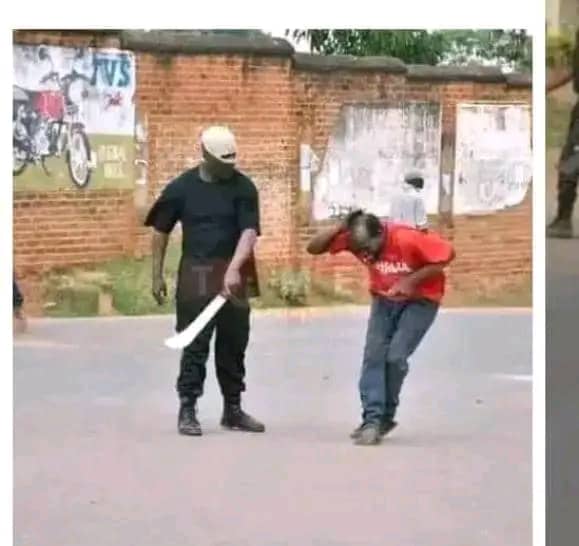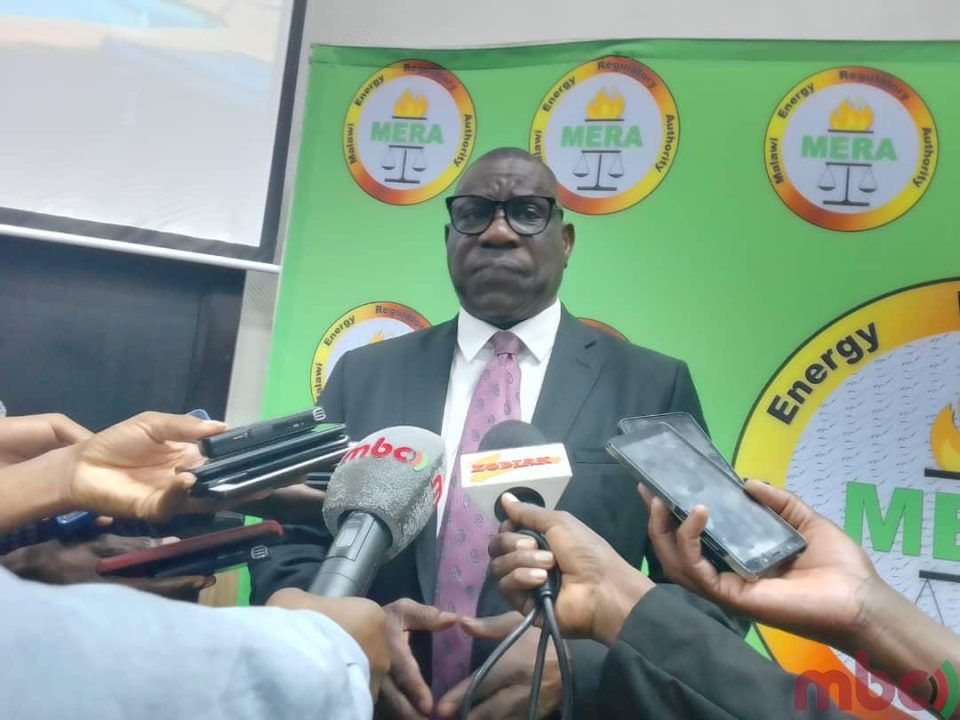By Burnett Munthali
Here is the picture that has won Times Group’s Emmanuel Simpolokwe the Photojournalist of the Year award.
It is not merely a photograph; it is a frozen scream of a nation in distress.
Captured in stark detail is the raw brutality of political violence perpetrated by youth aligned with the Malawi Congress Party (MCP), a governing party that once promised democratic renewal.
The image depicts an incident so brazen, so chilling, that its very existence challenges the nation’s conscience.
In full view of the Malawi Police Service, protesters were physically barred and threatened — not in the shadowy corners of night, but in broad daylight.
This incident took place in November 2024, in the capital city of Lilongwe, marking a grim chapter in Malawi’s democratic journey.
At the time, citizens had mobilized for planned demonstrations aimed at voicing their frustrations and demanding accountability.
However, those efforts were violently halted not once, but twice in just as many weeks.
The perpetrators were masked men brandishing pangas — a symbol of terror and suppression.
What made the scene even more disturbing was the unmistakable presence of Malawi Police officers who chose inaction over intervention.
The police stood by, uniformed but unmoved, armed but inactive, as citizens were assaulted in real time.
These violent acts were not carried out by invisible forces but by identified and emboldened aggressors.
They acted with such confidence that one could only assume they had a silent nod from the very institutions meant to protect the people.
The first time these armed masked men disrupted protests, the country waited for a response from those entrusted with public security.
Instead of condemnation, there was deafening silence from those in power.
The Commander-in-Chief, President Lazarus Chakwera, did not speak out.
The Minister of Homeland Security, Ken Zikhale Ng’oma, remained silent despite being the political head of internal order.
Inspector General of Police, Merlyn Yolamu, whose constitutional role demands impartial protection of all citizens, also did not utter a word.
In that vacuum of official outrage, fear grew deeper roots in the hearts of Malawians.
Only former presidents—Bakili Muluzi, Joyce Banda, and Peter Mutharika—stepped forward to fill the moral void.
They issued a rare joint statement condemning the attacks and demanding accountability.
Their message was clear: violence, whether sanctioned or ignored, must not go unpunished in a constitutional democracy.
Yet, weeks turned into months, and accountability remained a dream deferred.
Not a single individual among those armed thugs was arrested or publicly investigated.
Instead, the weight of the law appeared to fall selectively.
Only individuals suspected of stoning the President’s motorcade in Chikwawa were arrested and paraded.
That, too, tells a story—the story of a justice system that appears tilted, not by accident but by design.
The contrast is glaring: peaceful protesters were threatened and harmed under police gaze, and nothing was done.
Meanwhile, suspected protesters in another district faced swift legal consequences for offenses far less violent.
The picture by Simpolokwe has thus become more than just an award-winning photograph.
It is a national indictment.
It is a visual petition to the soul of Malawi, a plea for a return to constitutional sanity and equal protection under the law.
It forces Malawians to ask: when institutions cower or collaborate in the face of impunity, who protects the ordinary citizen?
It also puts the spotlight on the uncomfortable truth that some elements within the ruling establishment may be benefiting from—or at the very least tolerating—these violent tactics.
A government that does not condemn violence indirectly condones it.
And a police service that watches abuse without intervening becomes complicit by omission.
The legacy of democracy is not measured in words spoken on political podiums, but in the courage to protect even those who oppose the ruling class.
The events of November 2024—and the silence that followed—show that Malawi’s democratic project is under siege not just from violent actors, but from institutional decay and political cowardice.
What remains is for the people of Malawi to decide whether they will accept this new normal or rise against it with peaceful resistance, legal advocacy, and relentless civic pressure.
Because in the end, a democracy that tolerates violence and rewards silence is no democracy at all.




